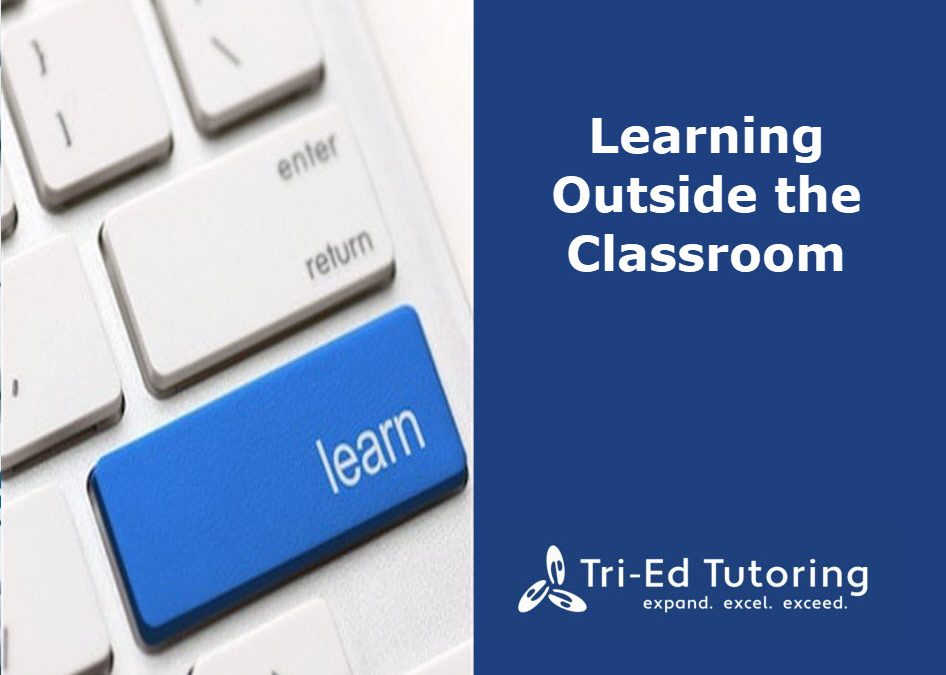With the closure of Virginia schools from mid-March to August due to the coronavirus pandemic, students will have five months off from in-person classroom instruction. The structure and support schools provide students will be sorely missed, and the risk of falling behind in reading and math increases the longer a student spends outside of the classroom. It can be a challenge to transition from 30 hours a week of classroom instruction to an online self-learning environment or no study time at all. Keep in mind, there are plenty of opportunities to learn outside the classroom and virtual learning environment. Here are just a few.
• Around the House: Cooking is a great time to talk about the applications of fractions. Grocery lists can provide a writing opportunity for students and shopping provides an application for discussing budgeting, needs vs. wants, and measurements (such as weighing produce).
• Board Games: Scrabble, Scattegories, trivial pursuit, monopoly, and chess are just a few of the many board games that require critical thinking and problem-solving skills.
• Cards: A deck of cards can also provide hours of educational fun. When there’s time during my math tutoring sessions, I deal the entire deck of cards to me and my student and we both flip over two cards face up. The player whose cards add up to the highest sum takes all the cards. For older elementary students, you can change the game to multiplication. For upper elementary or middle school students, the game can be modified again to create fractions.
• Mental Math: On a long car ride, challenge your students to a competition of mental math. Pick a number that is not a perfect square and see who can get closest to the square root. You and your child each choose a two-digit number and see who can multiply them the fastest. Another game is to use only the numbers from the year that we are in, see how many of the numbers from 1-100 you can make. Any operations can be used. For example, you could use 2020 to make 4 by adding 2+0+2+0. Or you could get more creative by saying 20-20. More advanced math can be used for this game such as roots and exponents. For example, 1 can be made by √9 -2 +0+0.
• Storytelling: For younger students, you can tell number stories to encourage math facts. For example, “On the way to the beach, we passed 3 cars and 4 trucks. How many total automobiles did we pass? While driving, we had to stop twice to let your brother go to the bathroom, three times to get gas, and three times to ask for directions. How many total stops did we make?” Encourage your students to also make their own stories for you to answer. Storytelling can also be applied to language arts by developing characters and a storyline with a setting, plot, conflict, and resolution.
• Study Apps: Even though you don’t have graded tests and quizzes at home, it’s important to continue your studies and retain information to increase your knowledge. With today’s technology, you can learn right from your phone using study apps like Khan Academy, Quizlet, and Study Checker. For a list of SAT study apps, click here.
• Online Resources: Instructional packets, worksheets, and guided lessons can be found online and printed out for students to complete at home. There are some great educational resources for free at www.education.com, and you can download math, language arts, science, and social studies worksheets here. Finally, a list of links for virtual field trips, educational activities, and games can be found here.
When they re-open:
• Libraries: For younger students, story times and craft times are available at the public libraries. They often also have reading programs, especially in the summer.
• Museums and Parks: All age groups can enjoy the museums and parks available locally. Up the educational benefit by getting a little creative. Have students research and journal about what they would like to learn before they go or write about their favorite part of the trip when they return home. Before going to the park, create a scavenger hunt of things you may see on a nature walk.
The idea is that educational opportunities can take place any time and any place with a little creative energy. For more ideas, feel free to contact Tri-Ed Tutoring. If you feel like your student would benefit from more structured instruction while away from the classroom, contact us to learn how a private tutor may help.

